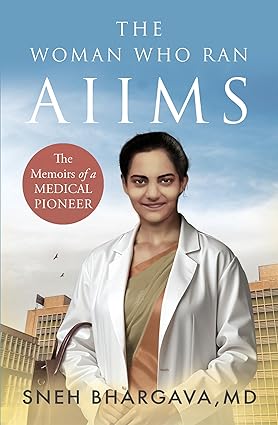Helen Garner Wins 2025 Baillie Gifford Prize for How to End a Story
Australian author Helen Garner wins the 2025 Baillie Gifford Prize for How to End a Story, the first diary-based work to receive the prestigious nonfiction award.on Nov 06, 2025
.jpg)
Among key book and publishing awards to issue news in the run-up to Frankfurter Buchmesse - which is set this year for October 15 to 19 - the Baillie Gifford Prize for Nonfiction is among the most consequential.
At £50,000 (US$65,133 ) for its winner, this is one of the best-paying of the socially relevant nonfiction award regimes, and the Baillie Gifford’s jurors’ usual sense for culturally accessible work—seriously meaningful, readable, and timely writings—can at times reflect that of Canada’s US$75,000 Cundill History Prize.
In addition to the winner's purse, there's £5,000 (US$6,714) for each of the other five shortlistees, putting the total prize money for this award at £75,000 (US$100,710).
And the winner of the 2025 edition of the Baillie Gifford has gone to one of the most requently lauded Australian writers-already a recipient of the 2023 Australian Society of Authors Medal, 2019 Australia Council Award for Lifetime Achievement in Literature; the Stateside and much-coveted 2016 Windham-Campbell Literature Prize; and the 2006 inaugural Melbourne Prize for Literature.
Her How to End a Story: Collected Diaries is, in fact, the first Baillie Gifford to go to a work of diaries, memoir if you will, and is a volume of Garner's own entries-from the early stages of her career in bohemian Melbourne, publishing her debut novel while raising a young daughter in the 1970s; the throes of an all-consuming love affair in the 1980s; and clinging to a disintegrating marriage in the 1990s.
"Told with devastating honesty, steel-sharp wit and an ecstatic attention to the details of everyday life, this year's Baillie Gifford Prize-winning book reveals the inner life of a woman in love, a mother, a friend and a formidable writer at work," say organizers of the Baillie Gifford.
This year's jury chair, Robbie Millen, said in London, "After the mysterious alchemy of the judging process, Helen Garner emerged as our unanimous choice".
"All six judges agreed that How to End a Story, the first diaries to win the Baillie Gifford Prize, is a remarkable, addictive book. Garner takes the diary form, mixing the intimate, the intellectual, and the everyday, to new heights."
“It gives its readers a fascinating insight into the creative reality of a writer's life—the insecurities, the doubts, the flashes of ego. It is also a recklessly candid, unsparing, occasionally eye-popping account of the implosion of a marriage."
“Garner is a brilliant observer and listener—every page has a surprising, sharp or amusing thought. Her collected diaries will surely be mentioned alongside The Diary of Virginia Woolf."
“It’s a big book but Garner is such good company.”
Repeating the 2025 Baillie Gifford Longlist
For our internationalist readership, a note that the publishers listed here are the UK publishers of the Baillie Gifford's longlisted titles. In cases of books originally published in other markets before being released in the United Kingdom, you may have encountered different titles.)
The Initial Pool Topped 350 Books
The 2025 jury panel, in addition to chair Robbie Millen, the literary editor of The Times and Sunday Times, comprises:
- Historian Pratinav Anil;
- Journalist Inaya Folarin Iman;
- Cultural historian, biographer and novelist Lucy Hughes-Hallett, a previous winner of the Baillie Gifford;
- The Economist‘s deputy culture editor Rachel Lloyd; and
- Author and biographer Peter Parker
The selection of 12 longlistees by the jury was made from a starting field of more than 350 books published between November 1 and upcoming October 31. That number appears to put the submission figure slightly ahead of last year's.
The 2024 winner of the Baillie Gifford Prize for Nonfiction was Question 7 from Penguin Random House. As was reported for The Times in London by David Sanderson on Thursday, October 2, Flanagan declined to accept his purse as the winner of the 2024 Baillie Gifford. He has made it clear that he wouldn't take the £50,000 unless the program's name-sponsor agreed to divest itself of hydrocarbon investments. Program director Toby Mundy has said the money, rejected by Flanagan, will go to a literary charity.
The prize, formerly called the Samuel Johnson, was established in 1999. Of any prize money available for a translated work selected by the jurors, 75 percent will be awarded to the author and 25 percent will be awarded to the translator(s).

.jpg)
.jpg)
.jpg)
.jpg)
.jpg)
.jpg)

.jpg)
.jpg)
.jpg)
.jpg)


_(1).jpg)
.jpg)










Sorry! No comment found for this post.